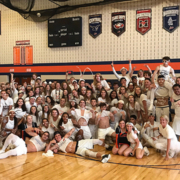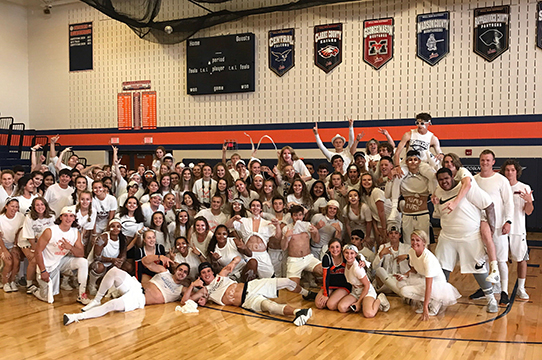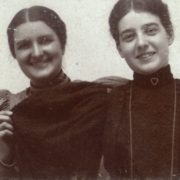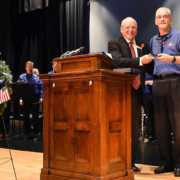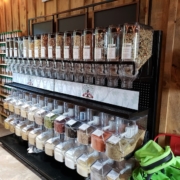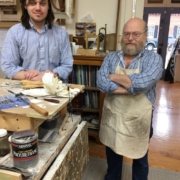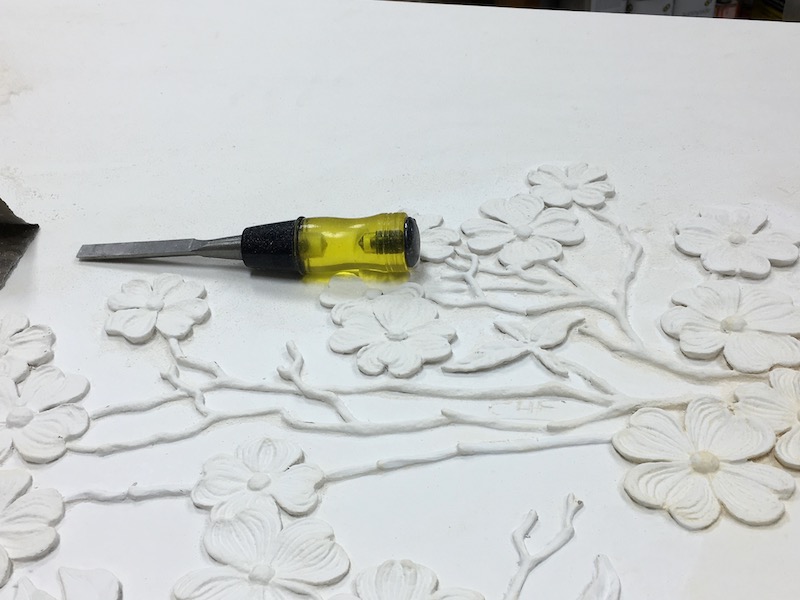Historic Garden Week In Clarke County
The annual Historic Garden Week Tour will take place April 24, from 10am till 5pm. Only 500 tickets will be sold, and staggered for morning and afternoon to avoid crowds at any one location. Tickets, which are $40 each for four properties, are available online only at vagardenweek.org; no tickets will be sold onsite.
GPS is unreliable in Clarke County. It is advised to stop at the Tour Headquarters at the Barns of Rose Hill at 95 Chalmers Court, Berryville.
Boxed lunches are available on tour day in Millwood at Locke’s Store. For options view their website at www.lockestore.com. Prepay reservations by credit card no later than April 23, 2021 by 2pm by calling 540-837-1275; ask for Shauna and be sure to mention Historic Garden Week with your order. Orders may be picked up after 10:00am.
Due to the pandemic, Claytonville and Thurman will be gardens only tours, but Caleb Nei Jazz Trio will play from 10am till noon at Thurman, and 2–4pm at Claytonville. Clay Hill and the Dower House will allow interiors to be viewed as well as their lovely gardens. Just ten guests will be allowed in the house at a time and all must wear masks and social distance.
The Dower House
211 Warner Washington Lane, Berryville
Mr. Peter Cook, owner
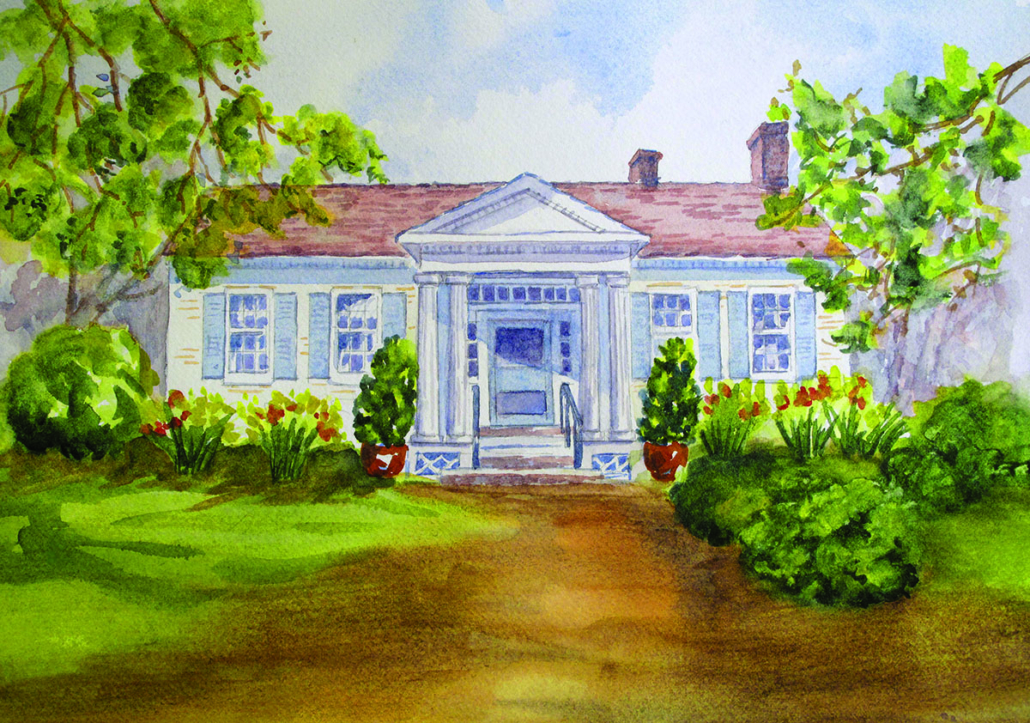
The house was built in 1765 by George Washington’s cousin, Warner Washington. The Greek Revival style wing was added in 1820s. When it was enlarged again in 1928, the structure became C – shaped. The Cook family added a new kitchen, family room and garage in 1977. The bottom of the original 1765 hand – dug well, located near the residence is still visible. A large 1830s barn was severely damaged by a Civil War cannonball but remains standing and is one of four pre – Civil War barns remaining in Clarke County. The property is open for Historic Garden Week in tribute to Beth Cook, wife, mother, and member of the Winchester – Clarke Garden Club, who loved the home and its gardens. She was the inspiration for the property’s Japanese Garden, designed as a metaphor of rain falling in the mountains, cascading down to the sea, thus repeating the cycle of life. It features more than 50 Japanese Maple, Japanese Black Pines, umbrella pines, Serbian Spruces, bamboos, liriope, hostas and peonies. Pastures are home to Mr. Cook’s rare Cleveland Bay horses, a critically endangered British breed. Formerly used as carriage and work horses, they are now bred to be sport horses.
Thurman Farm and Blakemore Cemetery
3836 Lord Fairfax Highway, Berryville
Barbara and Harry Byrd, III owners
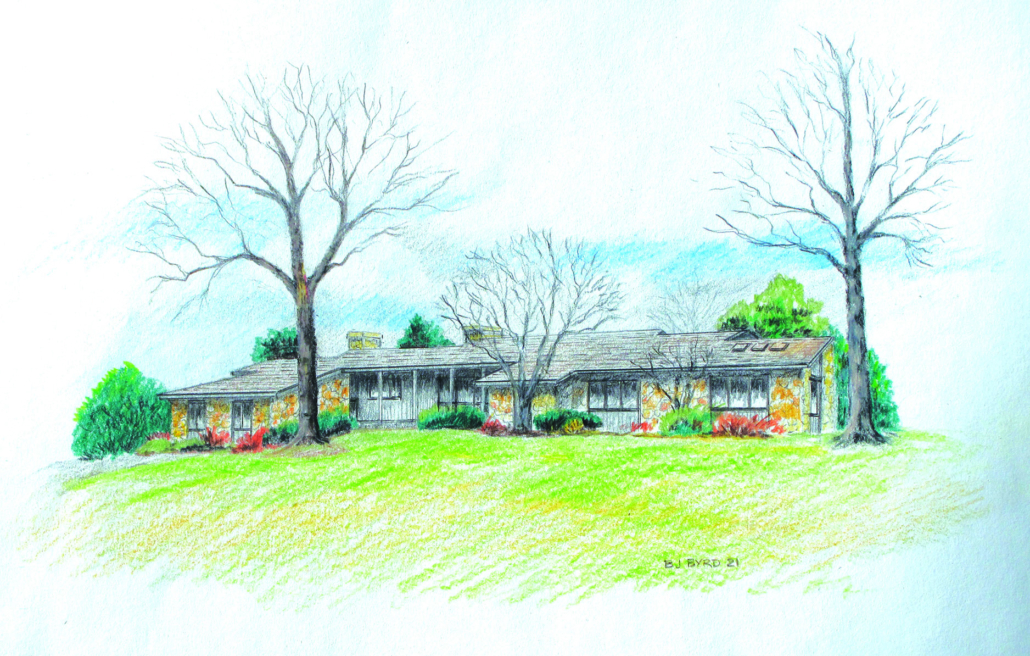
The residence is named after General Thurman, a Civil War general. A memorial in his honor is situated along the driveway leading to the house. The Byrd family has owned Thurman for three generations. In 1975 the present owners decided to tear down the previous Victorian house and build a stone ranch house incorporating many of the old doors and paneling from the original structure. A 1981 addition included an artist studio, a family room and a guest room. Stone from an old home in Hedgesville, WV and beams from an old tobacco barn were repurposed in its construction. Mrs. Byrd is a noted artist who has contributed numerous covers for The Chronicle of the Horse. An avid horsewoman, she has bred Connemara ponies for more than thirty years. They can be seen grazing in the pastures around the home. Just minutes away on the property owned by the Byrd family is the oldest privately owned enclosed cemetery in the county. Take a right after leaving Thurman, and another right and follow the signs to Blakemore Lane. It is the resting place of Lt. George Blakemore who served under General La Fayette at Valley Forge. Later he served as a judge and sheriff for Frederick County.
Clay Hill
859 Clay Hill Road, Millwood
Elizabeth Locke and John Staelin, owners
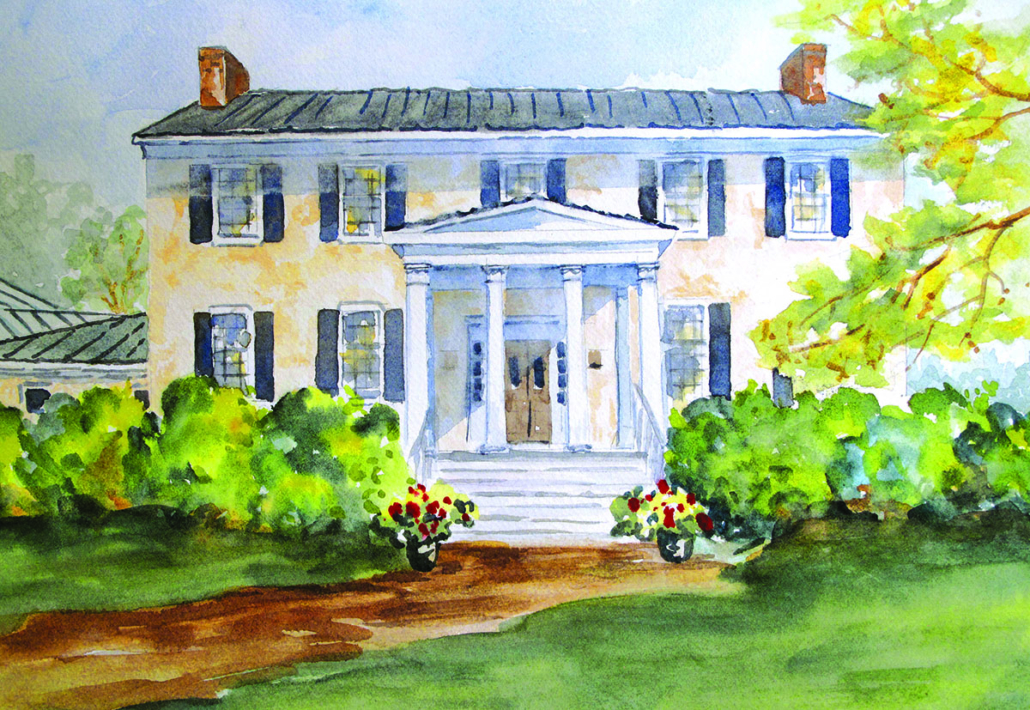
Built in 1816, this Federal style stone and stucco home situated on 100 acres has been featured in both Architectural Digest and Garden and Gun magazines. Originally built for the daughter of Nathaniel Burwell, only four families have lived at Clay Hill since its construction. The home retains many of its original features. The property underwent an extensive renovation in 2008, with an addition of a kitchen wing, formal Italianate boxwood parterre gardens and a custom made 19th century-style glass conservatory. Extensive perennial and vegetable gardens wind their way through stone walls built by Hessian soldiers. The attractive grounds include an original ice house, a chicken cloister and house as well as orangery.
The Gardens at Claytonville
574 Clay Hill Road, Millwood
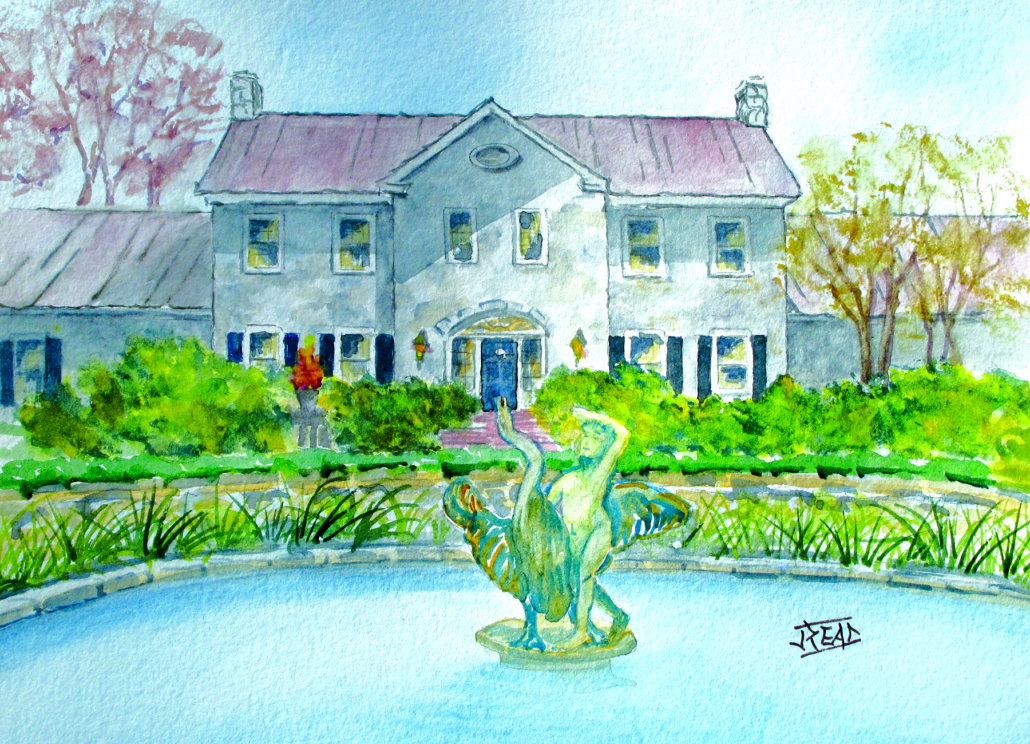
Inspired by magnificent views of the Blue Ridge Mountains, the limestone Federal style house was built in 1993. It is surrounded by formal gardens, manicured pastures, stables and a racetrack. The gardens were originally designed by the English designer, Sheila MacQueen who worked extensively for the British royal family. The gardens she designed at Claytonville focused on the inclusion of numerous trees, shrubs and plants used in flower arranging. The gardens have been expanded adding garden rooms, a potager and an overlook. The herb gardens are designed by country, with French, Italian, Mexican and Asian beds all interspersed with bee-loving and edible flowers. All gardens are organically tended with the use of companion planting and are filled with the beautiful display of flowering bulbs in the spring, summer and fall.

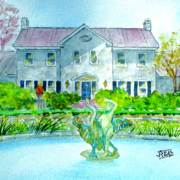
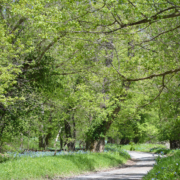
 Dusty Wissmath Fly Fishing
Dusty Wissmath Fly Fishing